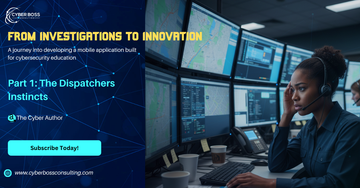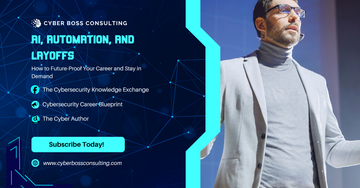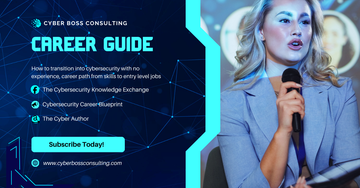Answering the Call: Life as a 911 Dispatcher
The phones never seemed to stop ringing. I will never forget my first traumatic call. A vehicle had slammed into a pole, and when I asked if anyone was hurt, the scream on the other end told me everything. The fire department arrived and pronounced the driver dead on arrival.
Not long after, I took a call about a child who had been pulled from a swimming pool. A father pleaded for help as I guided him through CPR. When emergency responders radioed in that the child’s pupils were blown, it hit me in a way no other call had. I was a mother myself, and hearing the desperation in his voice pierced right through the professional wall I had built. It wasn’t just another call, it was every parent’s worst nightmare.
From that moment on, I found myself becoming more protective, both at home and in how I approached my work. I realized the job wasn’t only about managing emergencies; it was about holding space for people in their most fragile and devastating moments. Motherhood gave me a deeper empathy, but it also made the weight of certain calls much heavier to carry.
Another call involved a domestic dispute where a mother suddenly heard a gun go off in the next room. Each situation carried unimaginable weight. As a 911 dispatcher, I had only seconds to listen, assess, and respond. There was no room for hesitation. Every detail mattered. Every decision carried consequences.
Behind the headset, the trauma lingered. Nightmares, emotional numbness, and even suicides among dispatchers were not uncommon. My own way of coping was to treat each call like a scene in a movie, detaching myself from reality just enough to make it through. It worked for survival, but over time it chipped away at my relationships and my sense of self.
What I didn’t realize then was that this environment was shaping me in ways I wouldn’t fully appreciate until later. It was teaching me how to investigate, how to stay calm in chaos, and how to manage crises with focus and precision. Those skills became the foundation of my path forward, leading me into cybersecurity and eventually into entrepreneurship.
Curiosity and the Investigative Mindset
I use to joke that I was “nosey,” but the truth is, that curiosity was one of my greatest strengths. As a 911 dispatcher, I didn’t have the luxury of seeing the full picture. I had only a frantic voice on the other end of the line, bits of background noise, and seconds to make sense of it all. The key was knowing the right questions to ask and asking them quickly.
That constant drive to dig deeper, to uncover the facts hidden between the words, taught me how to piece together fragmented information into something actionable. It wasn’t about being nosey for the sake of it, it was about survival, safety, and getting responders what they needed to save lives.
Looking back, I realize those same instincts are at the heart of cybersecurity. Whether it’s investigating a potential breach, analyzing logs in digital forensics, or managing a live incident response, the skills are the same. You listen for the details that others might miss. You connect scattered clues into a bigger picture. And you act on the evidence, even if it’s incomplete.
What once felt like nothing more than curiosity turned out to be the investigative mindset that has carried me through every stage of my career.
Calm in Chaos: Learning to Work Under Pressure
In the call center, chaos was constant. Phones rang without pause, emergencies unfolded in real time, and people on the other end often screamed, cried, or begged for help. There was no script, no pause button, and no second chance to get it right. I had to stay calm, think clearly, and act decisively, even when my heart was racing.
That environment trained me to operate under pressure in a way few other jobs could. I learned to manage stress, separate emotion from action, and keep my focus on what needed to happen next. Every call was a reminder that composure saves time, and time saves lives.
Those same lessons carried directly into my career in cybersecurity. Security incidents, like emergency calls, rarely unfold in a controlled environment. Systems fail, alarms trigger, and teams look for leadership when the pressure is highest. The ability to remain calm in those moments, to steady the room and focus on solutions, has been one of the most valuable skills I’ve brought with me.
Looking back, I see that my training ground wasn’t just the headset and the call logs. It was learning how to hold steady in chaos, a skill that has guided me from investigations to global projects and, eventually, into building something of my own.
Hidden Skills That Transferred Into Cybersecurity
When I first stepped away from dispatch, I didn’t realize just how many of the skills I had built in that high-pressure room would follow me. At the time, they felt like survival tactics. Looking back, they became the foundation for my cybersecurity career.
Communication. Every call demanded that I listen closely and communicate clearly. There was no room for confusion, lives depended on the details. That ability to translate complex or chaotic information into clear, actionable steps became invaluable in cybersecurity, where I often need to brief executives, guide teams, or walk clients through threats and solutions.
Pattern Recognition. After enough calls, I started to notice subtle trends, the way certain situations unfolded or how small details could predict outcomes. In cybersecurity, pattern recognition is everything. Whether it’s spotting anomalies in system logs or piecing together digital evidence, the skill of identifying what “doesn’t fit” makes all the difference.
Decision-Making. In dispatch, waiting too long to act wasn’t an option. I had to make calls based on incomplete information, trusting my instincts and training. Cybersecurity isn’t much different. Incidents rarely come with perfect clarity, and leaders often need to act fast to contain risks. That decisiveness, honed in the call center, carried over seamlessly.
What seemed like ordinary job skills at the time were actually building blocks for a much larger path. They were the tools I would later rely on as an investigator, a cybersecurity professional, and now as an entrepreneur leading my own firm.
The Personal Cost of Carrying Trauma
While dispatch gave me skills that shaped the rest of my career, it also came with a heavy price. Behind every call was a human story, and those stories didn’t end when I hung up the phone. Many dispatchers, myself included, carried the weight of those moments long after the shift ended. Nightmares, anxiety, and emotional numbness became part of daily life for some of us.
For me, coping meant detaching. I treated each call like a scene in a movie, convincing myself it wasn’t real so I could keep going. It worked in the moment, but over time, the constant numbing of emotions spilled into my personal life. Relationships suffered, and I often felt disconnected from people outside of work.
This is the side of emergency response that few talk about, the invisible cost on mental health. Many in the profession struggle silently, and some never find a healthy way forward. I consider myself fortunate that, despite the toll, I was able to take those experiences and channel them into growth.
Looking back now, I see how even the painful parts of that job shaped me. They taught me resilience, perspective, and empathy, qualities that have been just as important in cybersecurity and entrepreneurship as the technical skills. The trauma was real, but so were the lessons.
Looking Back: How It Shaped My Future
At the time, I thought dispatch was simply a job, a steady paycheck and a way to serve the community by helping people in their most difficult moments. What I didn’t realize was that it was quietly shaping the very core of who I would become. Every call, every split-second decision, every lesson in listening and piecing together fragments of information was preparing me for a much bigger path. The investigative instincts, the ability to stay calm in chaos, and the confidence to make decisions under pressure weren’t just skills for surviving the headset, they were building blocks for my future.
When I transitioned into investigations, those same instincts became my advantage. I knew how to ask the right questions, how to spot patterns, and how to handle the weight of high-stakes situations without freezing. Later, as I stepped into cybersecurity, I leaned on those very lessons again, whether working through complex cases, leading multimillion-dollar global projects, or stepping into leadership roles where clarity and composure mattered most.
Even now, as I build and prepare to launch a cybersecurity app designed to make education and opportunity more accessible, I can see the fingerprints of dispatch on everything I do. The way I approach challenges, the way I lead teams, the way I think about resilience, it all traces back to those early years with a headset and a phone line that never stopped ringing.
Looking back, I can see the full arc of my journey. What started as answering calls for help became the foundation for a lifelong path in investigations, technology, and entrepreneurship. Dispatch wasn’t just a job; it was my first classroom. It taught me lessons about people, pressure, and perseverance that no textbook ever could, lessons I carry with me every day.
Closing Reflection
When I think back to those long shifts as a 911 dispatcher, I realize I was being prepared for much more than I ever imagined. The chaos, the pressure, and even the pain gave me skills that became the foundation for my future in investigations, cybersecurity, and now entrepreneurship.
What seemed like ordinary work at the time was actually shaping resilience, sharpening instincts, and building the confidence to act when it matters most. Those lessons are still with me today, guiding how I lead, how I problem-solve, and how I serve others.
If there’s one takeaway, it’s this: the experiences that challenge you the most often become the very tools you’ll need for your next chapter. Sometimes the skills you gain in unexpected places are the ones that define your path forward.




